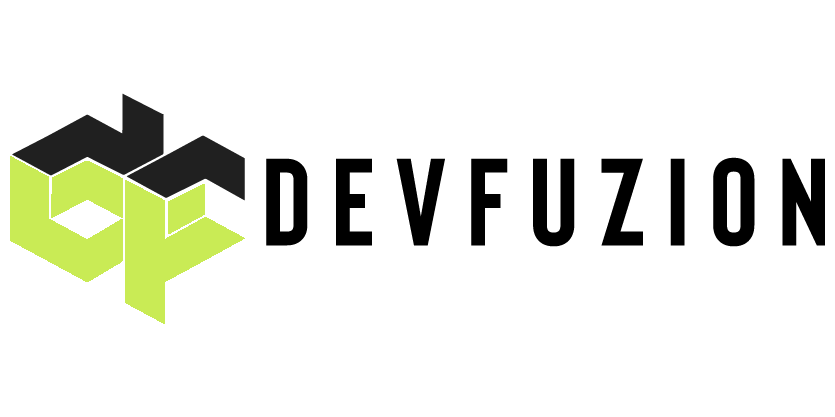In today’s fast-paced tech environment, maintaining compliance isn’t just a matter of meeting legal requirements. It’s a fundamental component of a successful IT strategy. Regular compliance assessments help ensure that your organization’s operations are in line with industry standards and regulations. Here are some compelling reasons why these assessments should be an integral part of your IT strategy.
1. Safeguard Against Security Threats
Compliance assessments are crucial for identifying and mitigating security threats. By regularly evaluating your practices and systems, you can uncover vulnerabilities and address them before they become significant issues. In the ever-evolving landscape of cybersecurity threats, staying one step ahead is crucial. Compliance assessments offer a structured approach to anticipate potential breaches, prioritize risks, and implement effective safeguards.
One example of effective compliance is the European Union’s GDPR, which mandates that personal data be processed lawfully and transparently. By aligning with such standards, organizations not only avoid hefty fines but also enhance their cybersecurity posture. Frequent assessments help streamline your defenses, ensuring that any gaps or weaknesses are promptly identified and resolved. This proactive stance can significantly reduce the likelihood of data breaches, which in turn helps build trust with stakeholders.
2. Ensure Adherence to Regulations
Navigating the ever-changing landscape of regulations can be complex. Regular assessments ensure you stay in compliance, reducing the risk of legal penalties and fostering better relationships with governing bodies. Staying updated with regulations like HIPAA or SOX is vital for organizations that deal with sensitive data. Regular reviews allow organizations to adapt quickly to regulatory changes, ensuring that policies and procedures remain in line with legal requirements.
Compliance isn’t a one-size-fits-all process; it requires nuances and understanding of specific industry regulations. By investing in regular assessments, businesses remain agile, adjusting to new laws and avoiding potentially costly infractions. Moreover, demonstrating compliance can improve your reputation with customers, showcasing your commitment to ethical business practices and customer protection. This enhances market confidence, proving that your organization values transparency and accountability over quick profits.
3. Promote Customer Trust and Confidence
When customers see that your organization takes compliance seriously, it builds their trust and confidence. Ensuring data privacy and security through compliance strengthens your reputation and can be a key differentiator in the marketplace. In an era where data breaches make headlines, demonstrating stringent security measures reassures clients that their information is in safe hands. Trust is a valuable currency between businesses and customers, and compliance assessments are a testament to a company’s dedication to integrity.
As more organizations emphasize data privacy as a core value, the importance of compliance becomes even more prominent. By proactively prioritizing compliance, companies can foster a loyal customer base that appreciates and acknowledges the commitment to security. This, in turn, may lead to increased customer retention and attract new clients who are drawn to businesses that have robust compliance frameworks in place.
4. Enhance Business Processes
Regular compliance assessments can lead to improved business processes. By highlighting areas that require attention, these evaluations prompt you to streamline operations and eliminate inefficiencies. Assessments can serve as illuminating moments that expose redundancies and needless complexities within internal frameworks. When companies act on these revelations, they are often able to simplify processes, driving efficiency and reducing operational costs.
Not only can assessments refine current workflows, but they can also act as catalysts for innovation. Understanding the compliance landscape helps in envisioning and implementing novel solutions that adhere to regulations while setting a new benchmark for industry operations. Through a commitment to regular assessments, organizations can remain competitive by staying ahead of industry trends while ensuring compliance.
5. Mitigate Legal Risks
One of the greatest advantages of compliance assessments is the reduction in legal risks. By maintaining compliance, your organization can avoid costly legal battles and focus on growth instead. Non-compliance can lead to severe penalties, including hefty fines and reputational damage, which can be crippling for any business. Regular assessments are indispensable for uncovering potential legal pitfalls before they manifest into significant challenges.
Additionally, featuring compliance as a cornerstone in your overall strategy can act as a preventive measure against potential litigation. With the potential costs of legal issues rising, ensuring regulatory adherence is an investment in your organization’s longevity and stability. Being proactive about legal risks can create a protective buffer for your business, allowing stakeholders to concentrate their energy on innovative projects that catalyze growth and advancement.
6. Facilitate Continuous Improvement
Compliance assessments drive continuous improvement by regularly reviewing and refining IT practices. This continual cycle of evaluating and enhancing processes leads to sustained organizational success. Leaning into regular compliance checks can inspire a culture of perpetual enhancement, where teams seek out improvement opportunities autonomously and stakeholders are actively involved in growth strategies.
Continuous improvement isn’t merely about compliance; it’s about fostering a mindset that sees value in every review and learning from every finding. By embedding Kaizen principles within the compliance framework, organizations can cultivate an environment where productivity and quality are ongoing quests, not just goals to be achieved.
7. Boost Employee Awareness and Training
Regular assessments help in training employees and raising awareness about compliance protocols. Well-informed staff are better equipped to follow best practices, reducing the risk of non-compliance. When team members understand the importance and nuances of their roles in maintaining compliance, they contribute to a unified front against potential risks. This empowerment can lead to improved morale and job satisfaction, fostering an integrated team spirit.
Increased awareness through compliance training not only empowers current staff but also attracts new talent who value workplaces committed to security and accountability. Offering comprehensive training programs creates informed employees capable of navigating the complexities of industry regulations and inspires a proactive approach towards compliance in everyday operations.
8. Improve Resource Allocation
Through compliance assessments, organizations can better allocate resources by identifying which areas demand more focus or improvement. This ensures resources are used efficiently to enhance overall IT strategy. Resources—time, money, or manpower—need to be directed with precision, and compliance assessments can highlight where these assets are best utilized.
The insights gleaned from compliance reviews offer a roadmap for strategic allocation, ensuring that every dollar and every hour contributes to competitive advantage. Such informed allocation supports not only compliance goals but also broader business objectives, making optimization an achievable target.
9. Support Strategic Decision-Making
By providing detailed insights into your current operations, compliance assessments support strategic decision-making. Armed with this knowledge, your leadership can make informed choices that align with long-term goals. Aligning compliance with strategic benchmarks serves as a guardrail that ensures decision-makers consider long-term risks and benefits rather than opting for immediate gains that could compromise future stability.
Furthermore, robust compliance frameworks contribute to competitive intelligence, giving leaders a clearer perspective on industry dynamics. By integrating compliance into decision-making processes, companies ensure that strategies are comprehensive, resilient, and well-informed, paving the way for sustainable growth and industry leadership.




